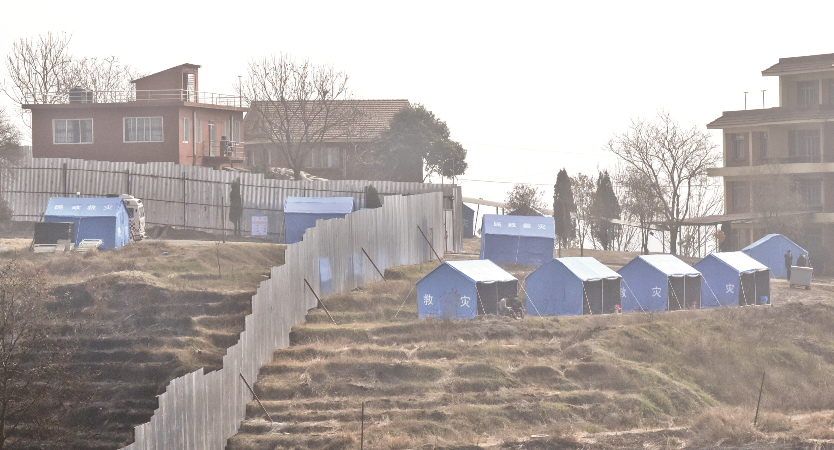Employees still unaware of OHS policies at workplace

Sampada Anuranjanee Khatiwada
Spread in more than 140 countries, the entire world is combating with the COVID-19 pandemic currently. While the affected countries are striving to control and protect their citizens, others are determined to prevent the spread of the virus.
Likewise, the government of Nepal has also been adopting various measures both, in the airport and the borders to prevent the import of virus.
Until now, Nepal observed only one imported case of COVID-19, 54 days ago, which has already been cured. Although the presence of the pandemic isn’t seen in Nepal until now, Nepal lies on high risk to get affected by the virus, due to its open borders.
One of the major preventive measures against contamination of the virus, which is also recommended by the World Health Organisation (WHO), is, to maintain social distancing by avoiding crowds. The virus is also likely to be spread from offices as group of people work together in offices.
Amid the COVID-19 outbreak, the offices worldwide have started implementing Work from Home (WFH) policies, to prevent their workers from being affected by the virus, Twitter, Facebook and many other Multi-National Companies being its example.
The international labour standards also provide for implementation of Occupational Safety and Health policies (OSH) in each and every workplace.
Despite being a party to the International Labour Organisation (ILO), the government of Nepal however seems to have been overlooking the OSH policies recommended by ILO.
Although the Labour Act 2017, in Section 68, provisions mandatory implementation of OSH policies for every office, these policies are far from being implemented in the offices of Nepal.
Also, Section 74 of the Act provides for formulation of OSH committee in workplaces having more than 20 employees, to provide consultations regularly, ensuring implementation of effective mechanisms relating to health and safety of employees at workplace.
The Act also asserts implementation of appropriate measures to control and prevent epidemic diseases in the workplace.
Even though the labour legislation of Nepal does not seem escape clauses of any sort, these provisions are merely implemented in workplaces.
Surya Prasad Upadhyaya, Spokesperson of Department of Labour said, “During this time of global emergency, the labour legislations must be implemented with high scrutiny in order to prevent spread of the deadly virus through workplaces.”
Upadhyaya said that majority of the offices in Nepal were unaware about the provisions relating to OHS laid down by the Labour Act.
Some workplaces, however, have started carrying out health screenings, providing sanitisers, gloves and masks to their workers and customers or service receivers.
“The Department had not thought about using these provisions to prevent and control the breakout of the pandemic,” said Upadhyaya. “As the government, including Ministry of Health and Population has been working to make the citizens aware about the possible threats and preventive measures of COVID-19, the department has only been supporting the government’s effort.”
Upadhyaya said that the department would start taking initiations to prevent the spread of virus in workplace with the help of the legal provisions relating to OHS, if need be. “The department will start calling offices to implement the provisions of OHS, laid down by the Nepali labour legislations.”
Also, all the offices should start spreading awareness among their workers about the symptoms, prevention and overcoming measures relating to COVID-19.
Recent News

Do not make expressions casting dout on election: EC
14 Apr, 2022
CM Bhatta says may New Year 2079 BS inspire positive thinking
14 Apr, 2022
Three new cases, 44 recoveries in 24 hours
14 Apr, 2022
689 climbers of 84 teams so far acquire permits for climbing various peaks this spring season
14 Apr, 2022
How the rising cost of living crisis is impacting Nepal
14 Apr, 2022
US military confirms an interstellar meteor collided with Earth
14 Apr, 2022
Valneva Covid vaccine approved for use in UK
14 Apr, 2022
Chair Prachanda highlights need of unity among Maoist, Communist forces
14 Apr, 2022
Ranbir Kapoor and Alia Bhatt: Bollywood toasts star couple on wedding
14 Apr, 2022
President Bhandari confers decorations (Photo Feature)
14 Apr, 2022











